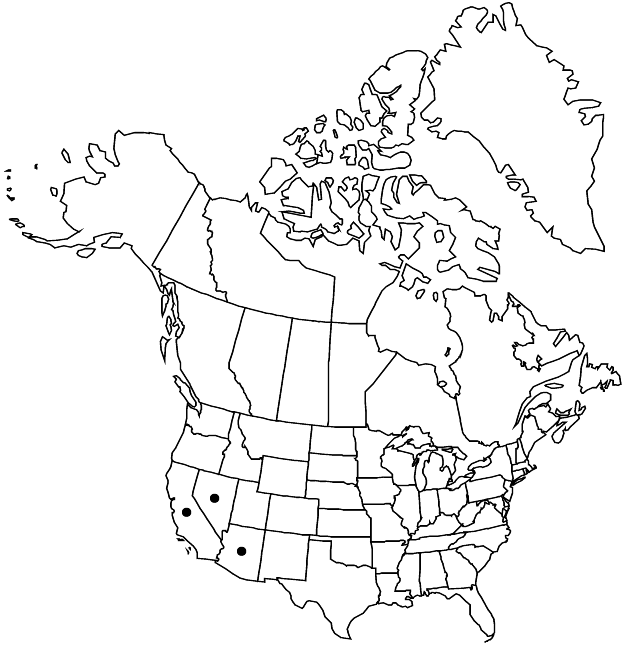Eriogonum reniforme
in J. C. Frémont, Rep. Exped. Rocky Mts., 317. 1845.
Herbs, spreading, annual, 0.5–4 dm, glabrous, greenish, grayish, or reddish. Stems: caudex absent; aerial flowering-stems erect, solid, not fistulose, 0.2–0.8 dm, glabrous except for few hairs proximally. Leaves basal; petiole 0.5–6 cm, tomentose to floccose; blade obovate or reniform to rounded, 0.5–2 (–2.5) × 0.5–2 cm, densely white-tomentose abaxially, tomentose to subglabrous and grayish or greenish adaxially, margins plane. Inflorescences cymose, open, 5–35 × 5–35 cm; branches glabrous; bracts 3, scalelike, 1–3 × 1–2 mm. Peduncles erect, mostly curved, slender to capillary, 0.3–1.5 cm, glabrous. Involucres turbinate to turbinate-campanulate, 1.5–2 (–2.2) × 1.5–2.5 mm, glabrous, glaucous; teeth 5, erect, 0.5–0.8 mm. Flowers 1–1.5 mm in early anthesis, becoming 1.5–2 mm; perianth yellowish to yellow in early anthesis, becoming reddish, glandular; tepals dimorphic, those of outer whorl broadly ovate, those of inner whorl oblong; stamens exserted, 1.5–2.5 mm; filaments pilose proximally. Achenes brown, lenticular, 0.8–1 mm, glabrous. 2n = 32.
Phenology: Flowering Feb–Aug.
Habitat: Sandy flats, washes, and slopes, saltbush, greasewood, creosote bush, and sagebrush communities, pinyon and/or juniper woodlands
Elevation: 0-1700 m
Distribution

Ariz., Calif., Nev., Mexico (Baja California)
Discussion
Eriogonum reniforme is infrequent to locally common throughout its range on the Mojave and Sonoran deserts in Arizona, southeastern California, and southern Nevada, where it extends northward along the Lahontan Trough onto the cold desert of the Great Basin. It is disjunct in the Tucson Mountains of Maricopa County, Arizona, and while specimens have not been collected there since 1906 (Thornber 5886, CAS, MO), the species recently was found north of Wickenburg (Welnick s.n., undated, ASU). It just enters Mexico, where it is rare.
Eriogonum reniforme is a food plant for the rare Mojave dotted-blue butterfly (Euphilotes mojave). The small blue (Philotiella speciosa) also feeds on these plants.
Selected References
None.
Lower Taxa
"dm" is not declared as a valid unit of measurement for this property.